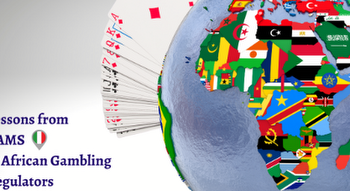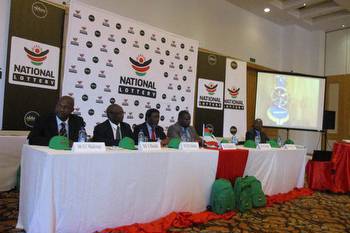South Africa plans to legalise online gambling for real money

The situation regarding the gambling market is currently completely blurred
Recently there has been serious debate in the South African region related to the regulation of the gambling market. The main protagonist is the Democratic Alliance, an opposition political party that has passed a law aimed at eliminating the country’s long-standing ambiguous online gambling policy.
An attempt to regulate the gambling market at the federal level was made about 14 years ago, but it was not successful due to competing views on the future of the sector, and amendments to the National Gambling Law were never ratified.
Current regulation of gambling for money in South Africa
The situation regarding the gambling market is now completely blurred. On the one hand, South African law allows online gambling to be offered by any operator with a licence issued by the relevant provincial government, but at the same time, the country does not have a full-fledged legislative framework. The problem is that the National Gambling Law (which was submitted for consideration in 2008) aimed at regulating the vertical has not yet come into force.
Although the law has not yet been adopted, gamblers and all those who do it have the opportunity to check their main points. It makes it possible to prepare for future changes that (if amended) will significantly modify the state of affairs in the South African gambling market. Below, you can take a look at the key provisions of the amendments to get a big picture.
Licences for real casino operators
This point is the most important of all the amendments. Firstly, it will regulate the issuance of licences: mechanisms, protocols, procedures and other things that accompany the process from beginning to end.
It should be noted that, according to the amendments, documents permitting gambling activity will be issued by the provincial authorities in whose jurisdiction the real money Casino Deps platforms will operate. In addition to the direct issuance of licences, this law will provide for a set of procedures regarding objections to the issuance of licences.
This point is almost as important for the development of the gambling industry in South Africa as the first one. This amendment is intended to influence advertisement in the field of gambling, presumably by liberalising it.
It will allow players to learn more about potential casinos and the market in general. Casino operators will be able to develop and scale their businesses. In addition, this clause will ensure that operators comply with the South African Financial Intelligence Center Act (FICA).
Protection of vulnerable persons
This amendment will also help set appropriate restrictions to ensure the protection of minors and vulnerable persons. Obviously, with the growth of the online gambling industry, the number of people with a gambling addiction also increases.
These amendments to the law will allow to settle this moment and create analogues of GamStop. It will enable people to access self-exclusive mechanisms, limit the number of deposits they can spend on playing casino games, use consulting services, and so on.
Monitoring of compliance with legislation
The fair gambling market liberalisation that the implementation of the amendments will bring does not mean that everything will go out of control. The amendments spell out all the procedures that contribute to the safe development of the industry, which will not entail risks for all participants.
This will mean monitoring by official regulators, who will check all aspects of the casino’s activities: from testing RNG and revealing hidden fees to checking the services associated with self-exclusion.
Anti-money laundering compliance
Money laundering is one of the most important problems faced by jurisdictions where there is no well-regulated online gambling market. To prevent it, this law will regulate the processes of registering on the site, making deposits, withdrawing funds and other financial manipulations. Providing the necessary KYC documents and ID verification will also be well-regulated.
Conclusion
Currently, the situation with the gambling market in South Africa remains tense and not favourable for both players and casino operators compared to Zimbabwe. Significant changes are expected to occur after the implementation of the amendments to the National Gambling Law.
With their help, it will be possible to fight for the full legalisation of the online gambling industry, along with clear regulation of its activity. This includes actions aimed at advertising, protecting the vulnerable segment of the players, monitoring the compliance of doing business with current legislation, and much more.





































